Why I Had Second Thoughts After Buying My Dream Home In Singapore
June 11, 2025
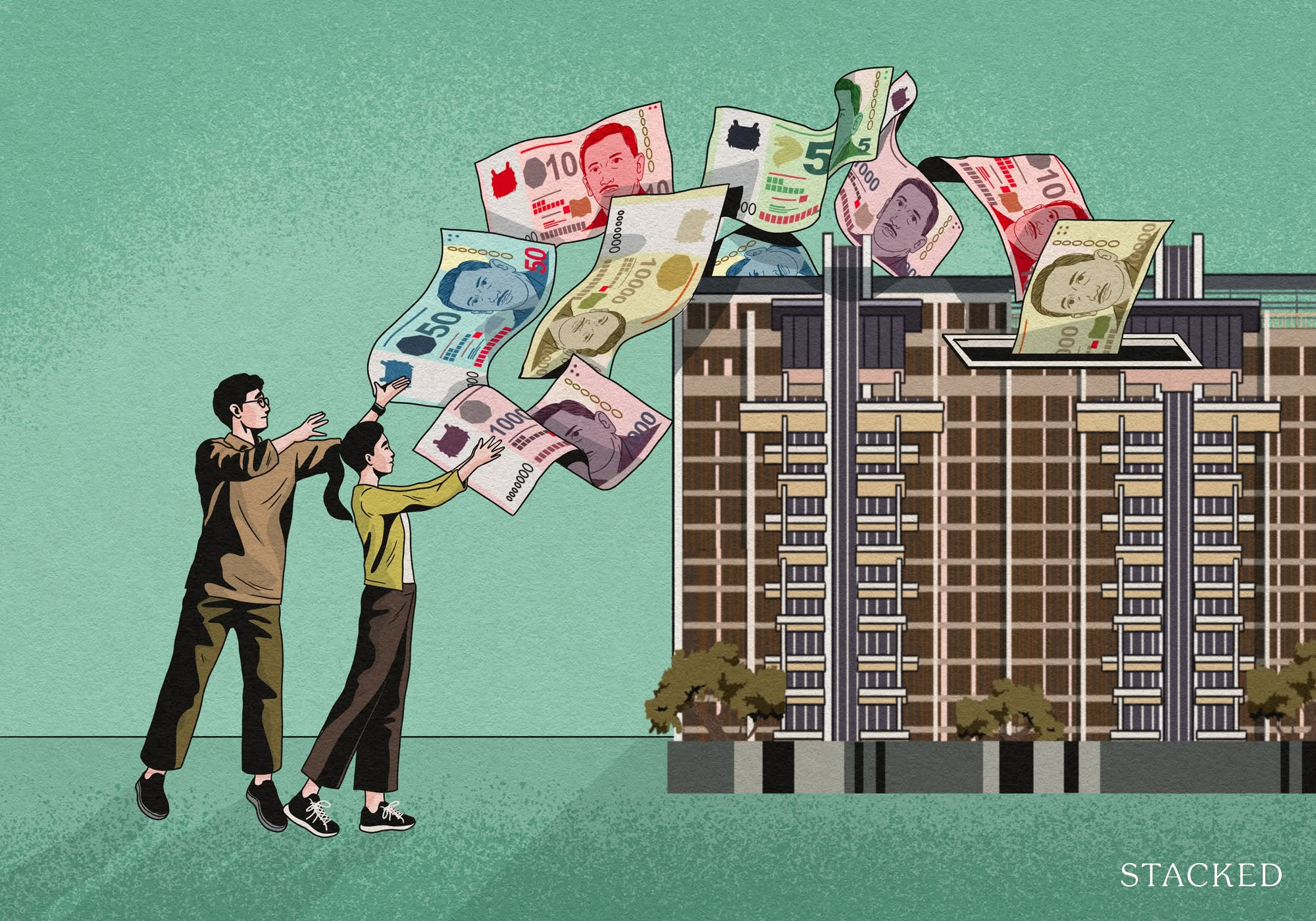
Buying a home is supposed to be one of life’s biggest milestones; but what no one tells you is how strange and disorienting it can feel right after the deed is done.
As I collected the keys to my first home, I started feeling something I didn’t expect. It wasn’t joy, or pride, or excitement, although all of that came eventually. It was a quiet, creeping panic that came in waves.
After months of searching, negotiating, paperwork, and planning, I had just made the single biggest purchase of my life. I should’ve been celebrating. But instead, I started second guessing myself: Did I spend too much? Did I overpay? Was this the right time? What if I lose my job?
So many readers write in because they're unsure what to do next, and don't know who to trust.
If this sounds familiar, we offer structured 1-to-1 consultations where we walk through your finances, goals, and market options objectively.
No obligation. Just clarity.
Learn more here.
The Sticker Shock Is Real, and It’s Not Just the Price Tag
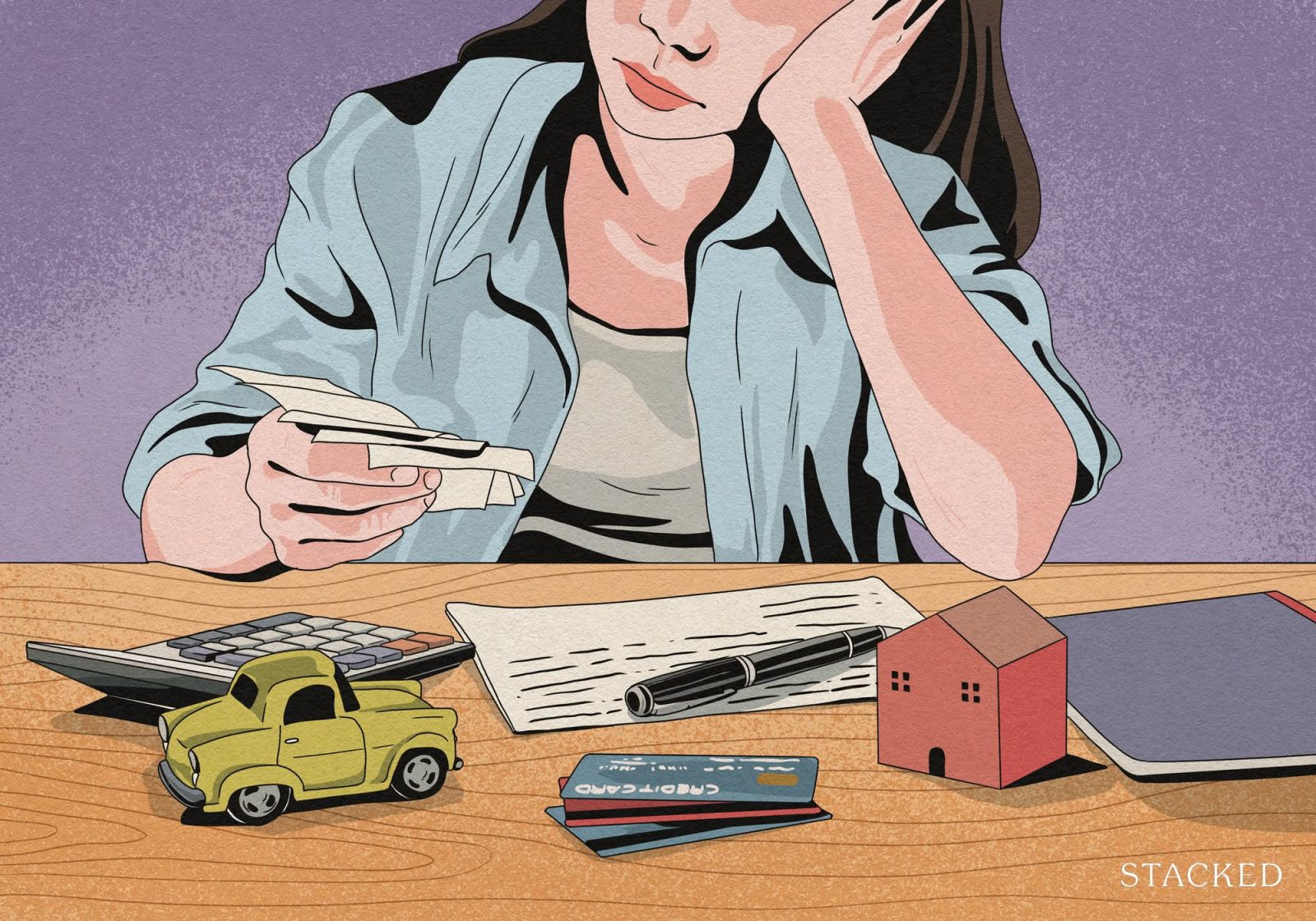
We often talk about buying a home as a milestone – a sign that you’ve made it – that you’re finally “settled.” But what’s less discussed is what comes after the milestone: an emotional and financial reckoning that follows once the ink has dried.
Throughout the process, the focus is on practical things: whether you can afford it, what your loan eligibility is, and whether your monthly repayments fall within your Total Debt Servicing Ratio (TDSR). It’s all about the numbers, until the moment they become real. That’s when the sticker shock sets in. And no, it’s not just about seeing your bank account dip after making the down payment.
It’s the jolt of realising that the mortgage you carefully planned for is now a long-term fixture in your life. That every month, for the next two or three decades, a portion of your income is already spoken for. Depending on how you divide your savings, it could mean a buffer you once relied on has shrunk. This, in turn, affects decisions about holidays, career moves, or big life changes.
The numbers are no longer theoretical. They’re part of your daily reality, and they start to influence how you think, even if nothing else in your lifestyle has changed just yet. Perhaps it’s why we retain the use of the term mortgage (mort = death in Latin, while gage = promise in Old French) for home loans even today: the term “death pledge” carries the serious financial weight of the commitment.
If you’re about to buy your first home, here are some of the emotional realities to brace for:
- You get more imaginative, and not in a good way
- You start to notice cost creep
- You’ll second-guess your decision
- In some cases, the anxiety gets channelled elsewhere
- You’ll eventually be grounded again
1. You get more imaginative, and not in a good way
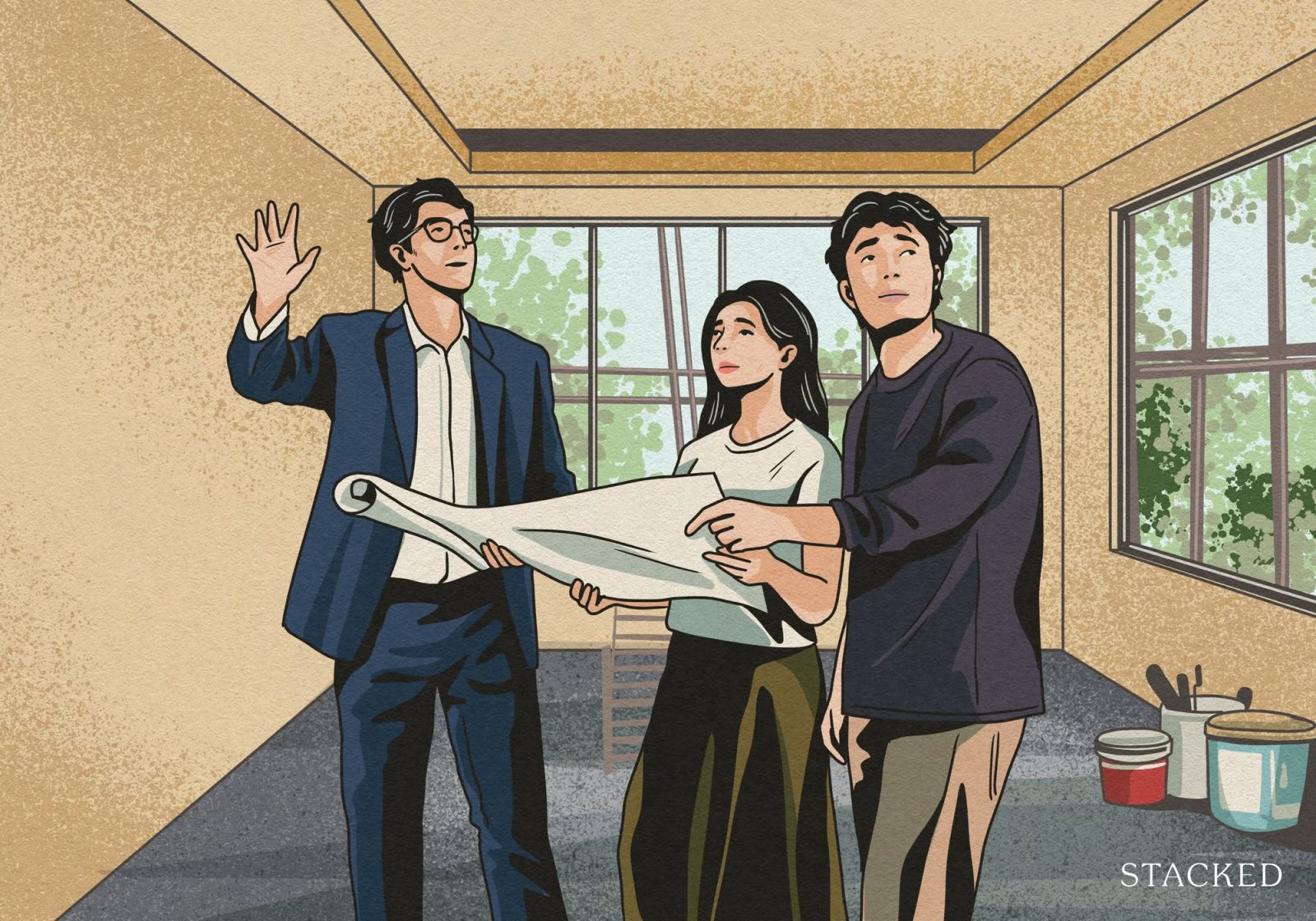
In the weeks leading up to home ownership, everything felt like a checklist. There was a simple sense of direction: choosing the unit, reviewing floor plans, signing documents, sorting out the loan, and planning renovation works. It was equal parts exciting and stressful, but at least it always felt like I was making progress.
Then the keys were handed over, and it all stopped.
The flat was officially mine, and just like that, the rush of activity disappeared. What followed was a strange stillness, paired with an odd mix of pride and unease. It felt like I had been sprinting toward something, only to arrive and realise I wasn’t quite sure what came next.
I found out I wasn’t the only one who felt this way. A friend who had just moved into her resale flat with her partner shared something similar. In the first few weeks, she found herself unable to sleep. She said, “I keep thinking about things I never used to. What if the interest rates go up? What if the upstairs neighbours continue drilling every weekend? What if there are repairs or leaks (sink pipes, aircon, etc) and I don’t have enough set aside to fix it?”
These thoughts hadn’t crossed her mind before. But the moment the flat became hers, they arrived without warning.
2. You start to notice cost creep
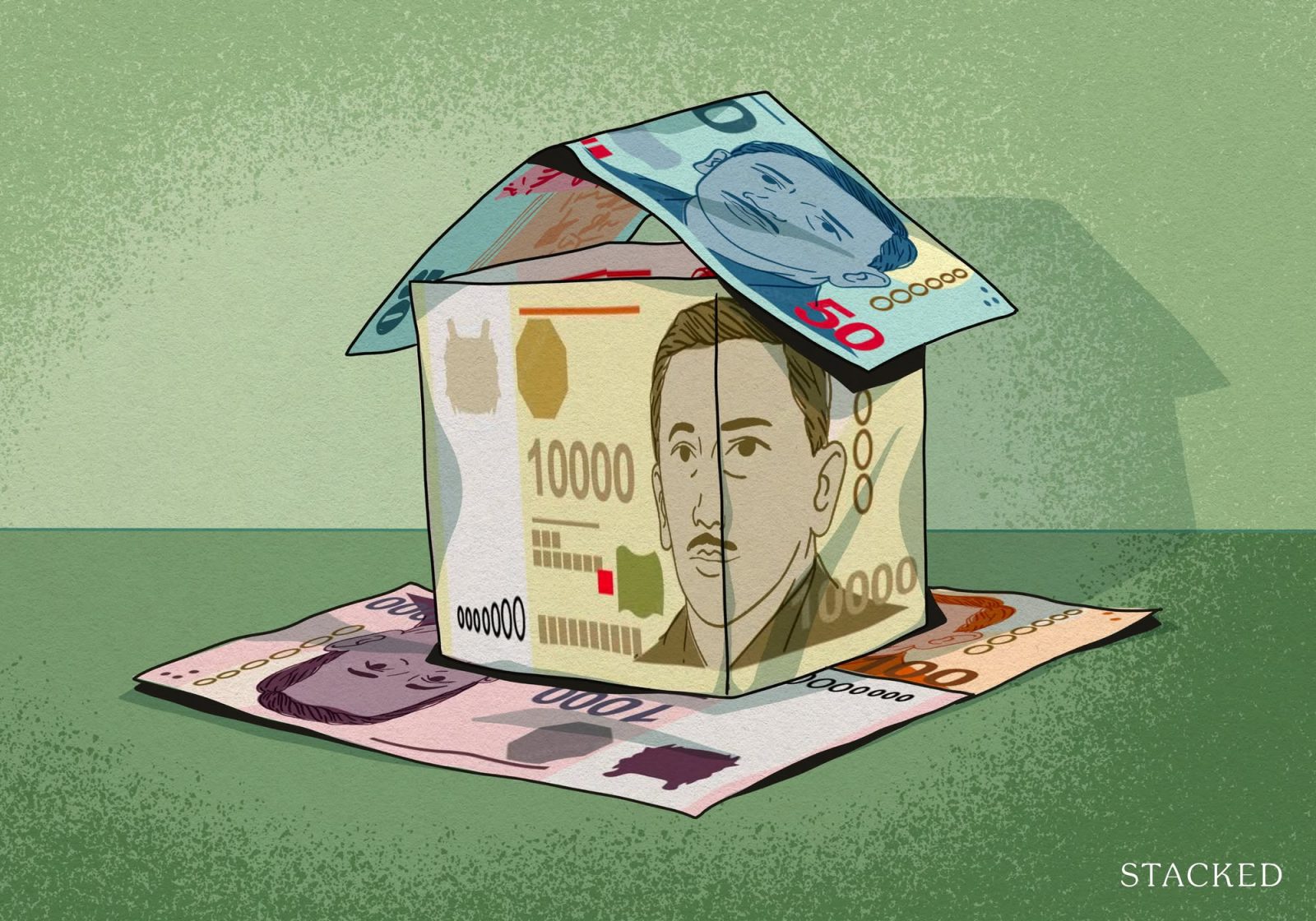
Beyond the major expenses, there are the quiet, creeping ones that tend to surface after moving in.
The renovation package that seemed complete but needed just a few more upgrades*. The sofa that looked perfect in the showroom but somehow didn’t feel quite right in your space (which you might have to re-sell it on Carousell and then find a replacement). The air-conditioner that worked fine, but made a hum just loud enough to question if it should be replaced.
Individually, these costs appear manageable. Collectively, they become a constant trickle that wears on both your budget and your state of mind; and it is not just the financial impact. It is the mental space these decisions begin to occupy.
I found myself re-evaluating even the smallest purchases. Some weren’t even directly related to the home, like skipping my usual coffee in the morning. I also found myself delaying the purchase of a rug that now felt indulgent, or turning off the air-con earlier at night, just in case it helped with the bill.
It was not about affordability. Something had simply shifted. Every dollar now came with a brief pause, and what used to be spontaneous started to require justification.
*As a loose rule of thumb, I’d prepare for renovation expenses to overrun the given budget by around 20 per cent.
3. You’ll second-guess your decision
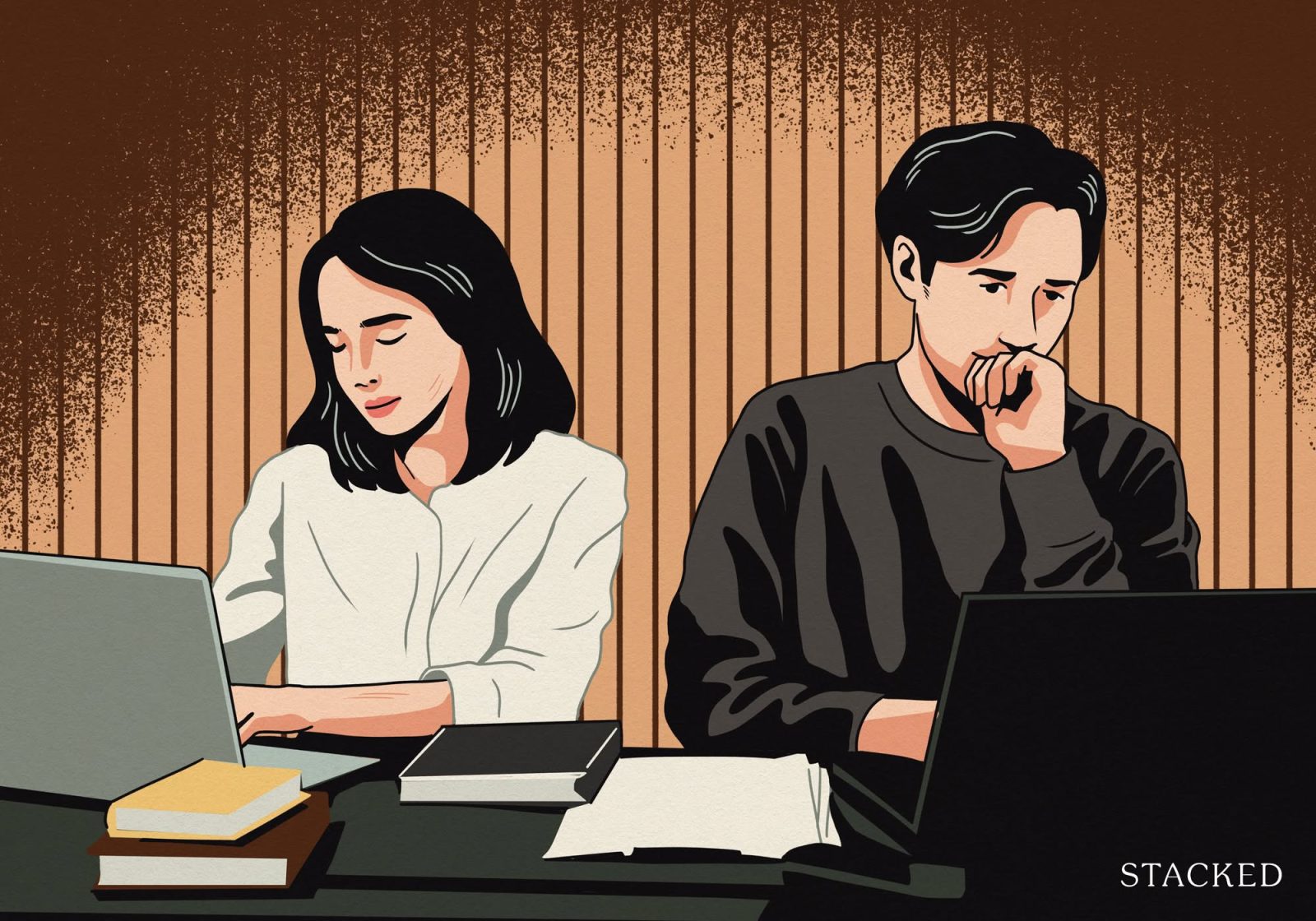
While financial costs are measurable, emotional ones are far less obvious and often more persistent.
There is the guilt that comes with spending large sums at once, which also causes an internal tug-of-war when you want to spend more to make the space feel whole. It’s a competition between anxiety-driven prudence (the desire to live like a monk to minimise further costs) and sunk-cost fallacy (what’s the point of not making it the best interior you can, when you’ve already spent so much?)
There’s also the pressure, subtle but steady, to ensure that every decision is the right one. Even if your decisions leading to this point were rational, you’ll find yourself revisiting them to identify “mistakes.” Along with the uncertainty comes quiet discomfort: a lingering sense of unease that remains, even when the paperwork is in order and the renovation is complete.
This part of the experience is rarely discussed. Perhaps because it feels indulgent to speak of uncertainty after such a significant milestone; or because admitting doubt feels like questioning a decision you worked hard to make. But it is more common than most people think and no less valid.
4. In some cases, the anxiety gets channelled elsewhere
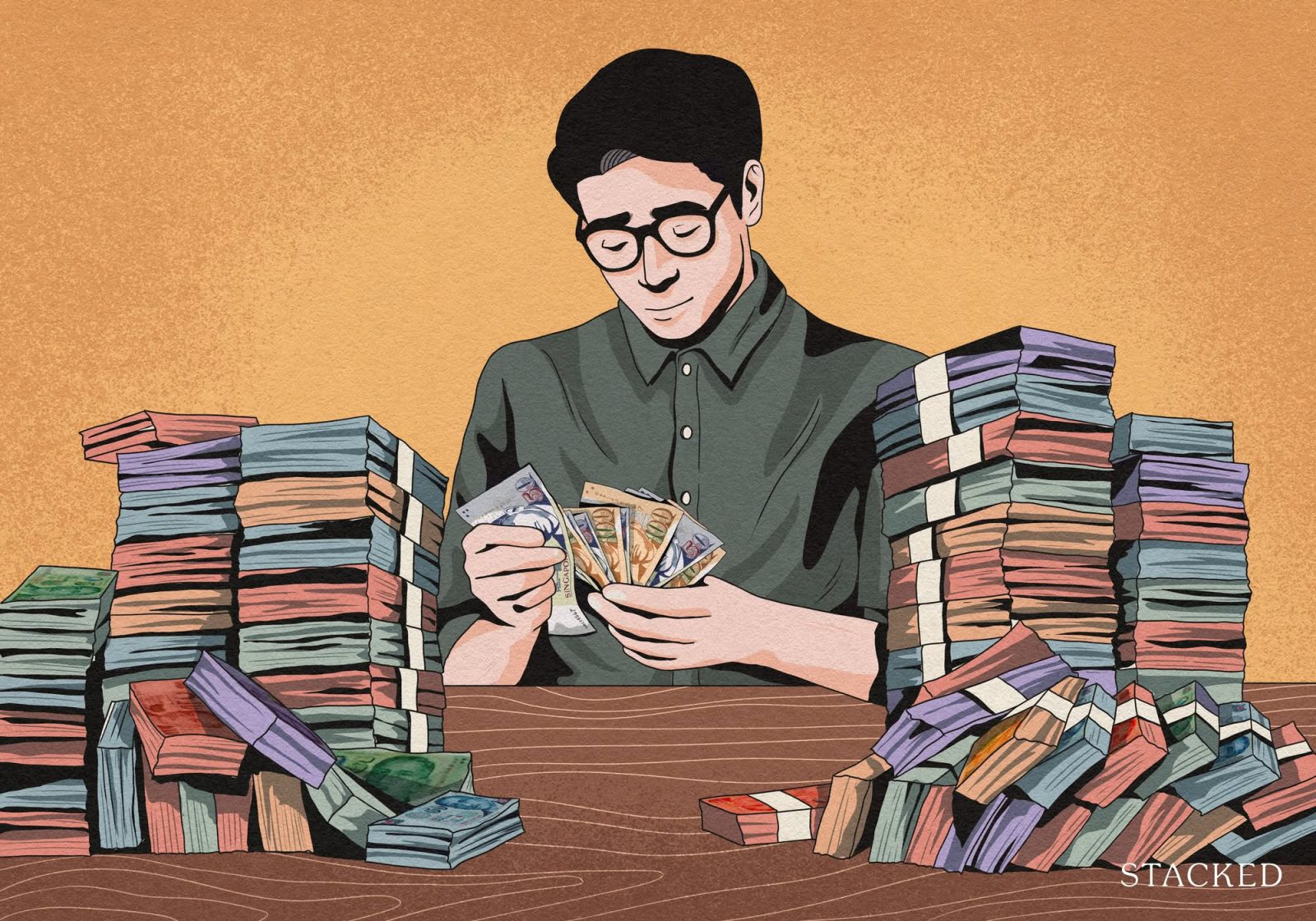
This is an important concern for those with dependents, like children or elderly dependents. The bottled-up anxiety from such a big purchase can get channelled toward others, in the wrong way.
An example from a friend of mine: After purchasing a condo unit, he was stressed by seeing the monthly mortgage (serviced in cash, not CPF) and quarterly maintenance fees. While he was satisfied with his new home, he found himself making small aggressive gestures, like comments about how the kitchen tap wasn’t fully closed, or implying they had to splurge more for facilities just because his daughter liked swimming pools.
The tricky part is catching yourself when it happens. It took my friend several weeks before his self-awareness caught on; but if he didn’t, it could have caused all kinds of domestic issues.
If the anxiety is weighing on you, it can help to have someone to talk to about it; whether it’s a friend or a counsellor.
5. You’ll eventually be grounded again
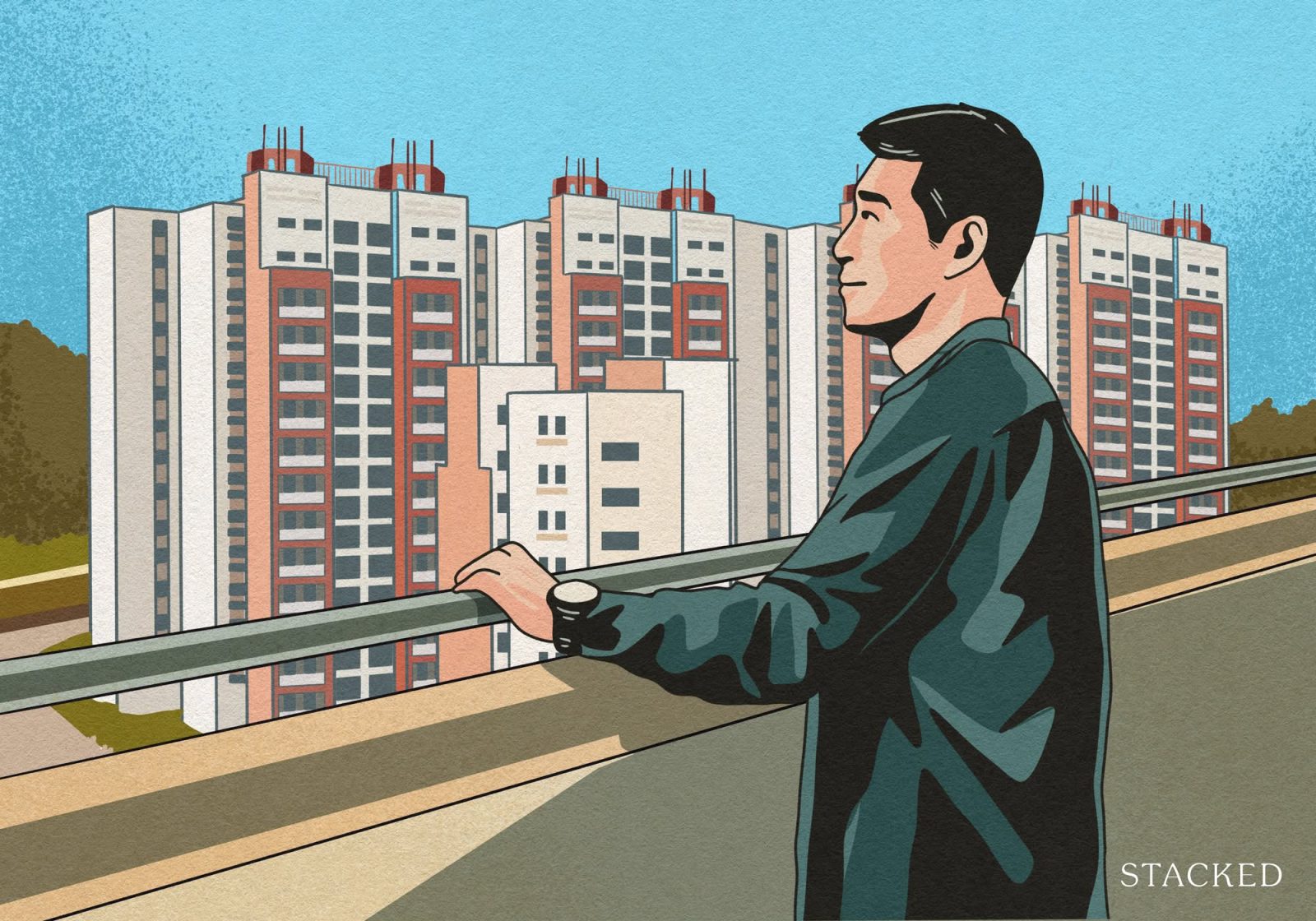
Buying your first home is, at its core, a leap. Even with the most careful planning and research, there is often a period that feels uncertain; it’s a moment when the noise fades and you are left sitting with the reality of what has changed.
The good news is that the feeling does not last.
Over time, the house begins to feel familiar. Routines settle in. The mortgage becomes just another line item. You stop measuring the value of every item against your budget. You begin to let go of the idea that everything needs to be perfect.
Eventually, you look around at the shelf you installed, the couch you debated over, the way the light moves across the room on a quiet afternoon; and you realise it feels right.
Not because it is flawless, but because it is yours. It reflects your choices, your compromises, and the life you are building.
If you have felt unsettled after buying your first home, you are not alone. The doubts will fade. The worry softens. And in place of all that noise, what remains is something steadier, and you will feel at home.
A few tips on killing the anxiety and enjoying home ownership quicker
- Recognise that anxiety is normal; everyone feels the same agitation when they’ve put down hundreds of thousands of dollars, and have 20 or 30 years more to go. Your anxiety is not due to any kind of unique mistake, and it does go away in time.
- Set parameters before you spend; whether it’s furniture, decor, or upgrades, it helps to define clear boundaries. Decide on a budget range, a style direction, or a “must-have vs nice-to-have” list before you start browsing. Constraints create clarity and reduce decision fatigue.
- Revisit the decisions you know were right, rather than speculating where you might have been wrong. Remind yourself you still have an emergency fund, you picked a home that’s within your budget range, the location is practical for your family, etc.
- Build a simple tracking system by creating a spreadsheet or using a notes app to track purchases, quotes, or pending items. It doesn’t need to be elaborate, just something that helps you visualise what’s done, what’s outstanding, and what can wait. Knowing where your money is going brings a surprising sense of calm.
- Give decisions a deadline; It’s easy to agonise over every choice, especially when you want your home to feel perfect. Set reasonable deadlines for each decision, even if it’s something small like choosing a towel rack or deciding on a paint colour. Done is often better than perfect, and momentum builds confidence.
- Stop checking and rechecking the property reviews, trying to find something bad that you may have missed. You’re in the actual property already: so focus on your first-hand experience in enjoying it and living in it. You can close the property portal tabs and stop comparing prices, wondering if you could have found a better deal.
- Reframe the Process. Think of homeownership not as a single moment, but a slow build. Your home doesn’t have to look or feel complete right away. Give yourself permission to grow into it, and enjoy the process as it unfolds.
Buying your first home is a big step, but it does come with a side of perfectly normal anxiety; so if you need direct help or prefer to ask questions in the flesh, we’re always here for you at Stacked. Reach out if you have any worries, or if you have needs specific to your lifestyle and family; we know not everyone is just focused on chasing profits!
At Stacked, we like to look beyond the headlines and surface-level numbers, and focus on how things play out in the real world.
If you’d like to discuss how this applies to your own circumstances, you can reach out for a one-to-one consultation here.
And if you simply have a question or want to share a thought, feel free to write to us at stories@stackedhomes.com — we read every message.
Gail Lau
Gail is the Chief of Staff at Stacked, where she also writes stories about homes, neighbourhoods, and the human side of real estate. From the quiet struggles of local businesses to the milestone moments of first-time homeowners, she believes meaningful stories can shape how we see the spaces we live in. Got one to share? Reach her at gail@stackedhomes.com.Need help with a property decision?
Speak to our team →Read next from Property Advice

Property Advice We Sold Our EC And Have $2.6M For Our Next Home: Should We Buy A New Condo Or Resale?

Property Advice We Can Buy Two HDBs Today — Is Waiting For An EC A Mistake?

Property Advice I’m 55, Have No Income, And Own A Fully Paid HDB Flat—Can I Still Buy Another One Before Selling?

Property Advice We’re Upgrading From A 5-Room HDB On A Single Income At 43 — Which Condo Is Safer?
Latest Posts

Pro Why Some Central Area HDB Flats Struggle To Maintain Their Premium

Singapore Property News Singapore Could Soon Have A Multi-Storey Driving Centre — Here’s Where It May Be Built

Singapore Property News Will the Freehold Serenity Park’s $505M Collective Sale Succeed in Enticing Developers?
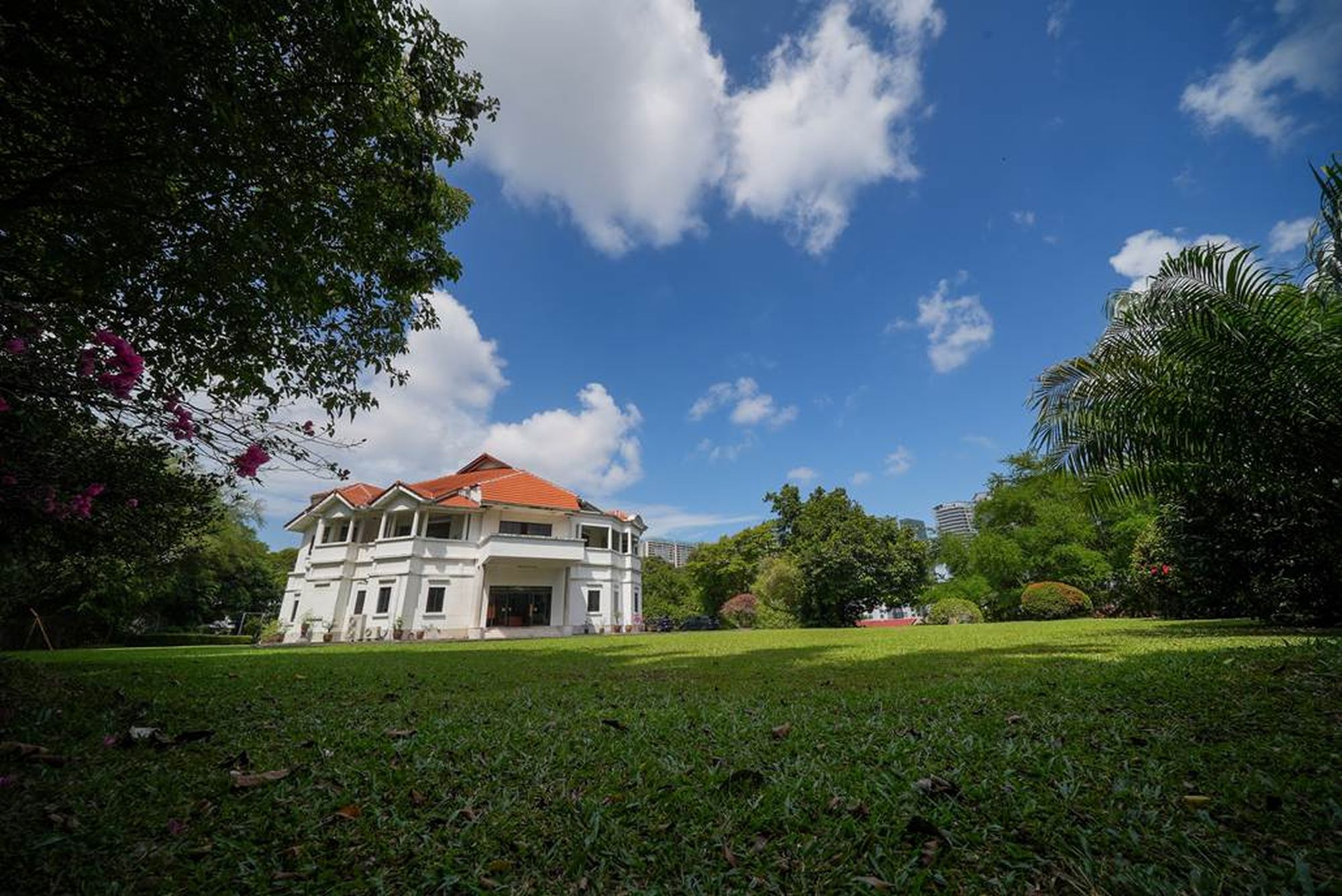

























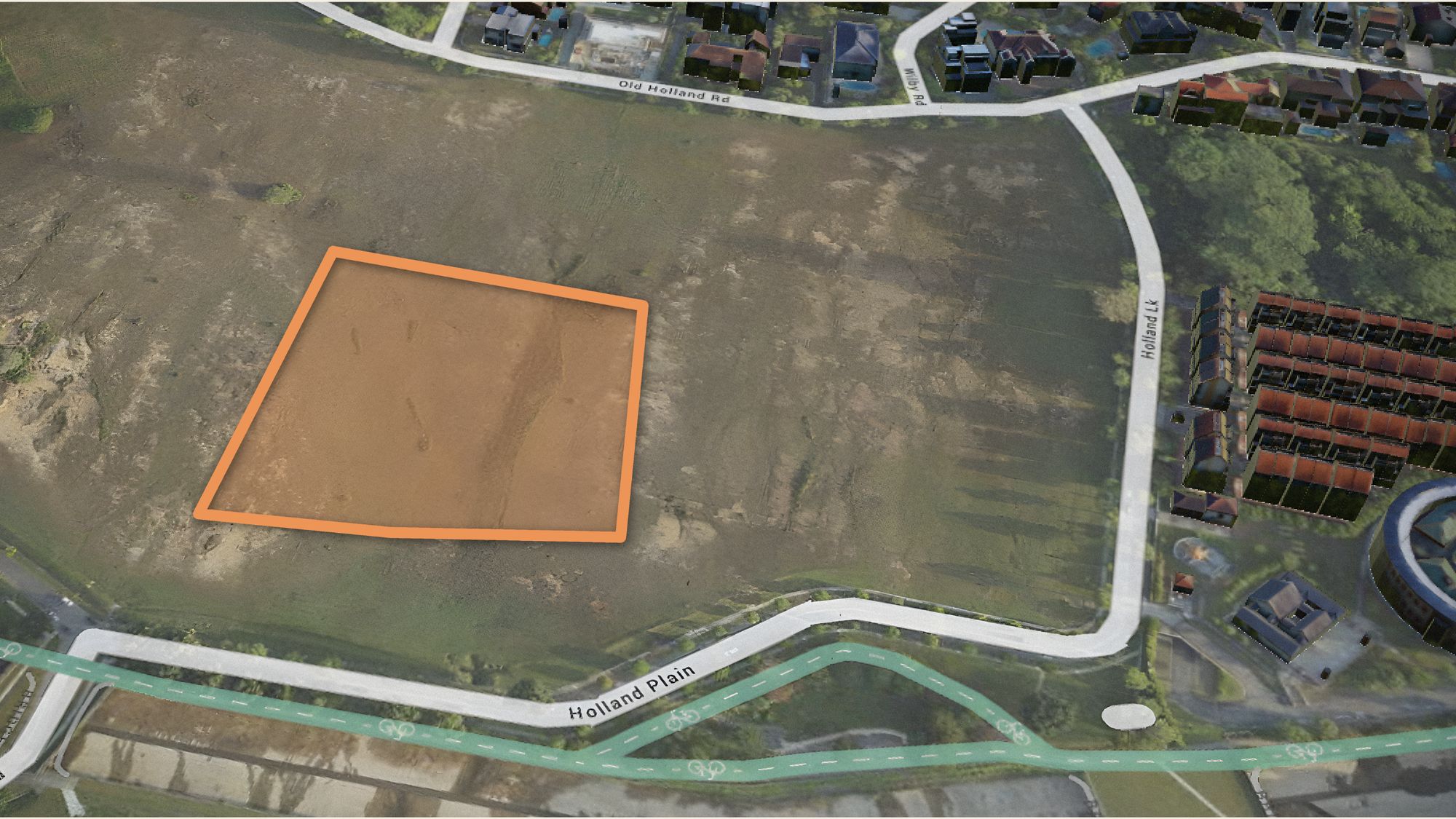








0 Comments